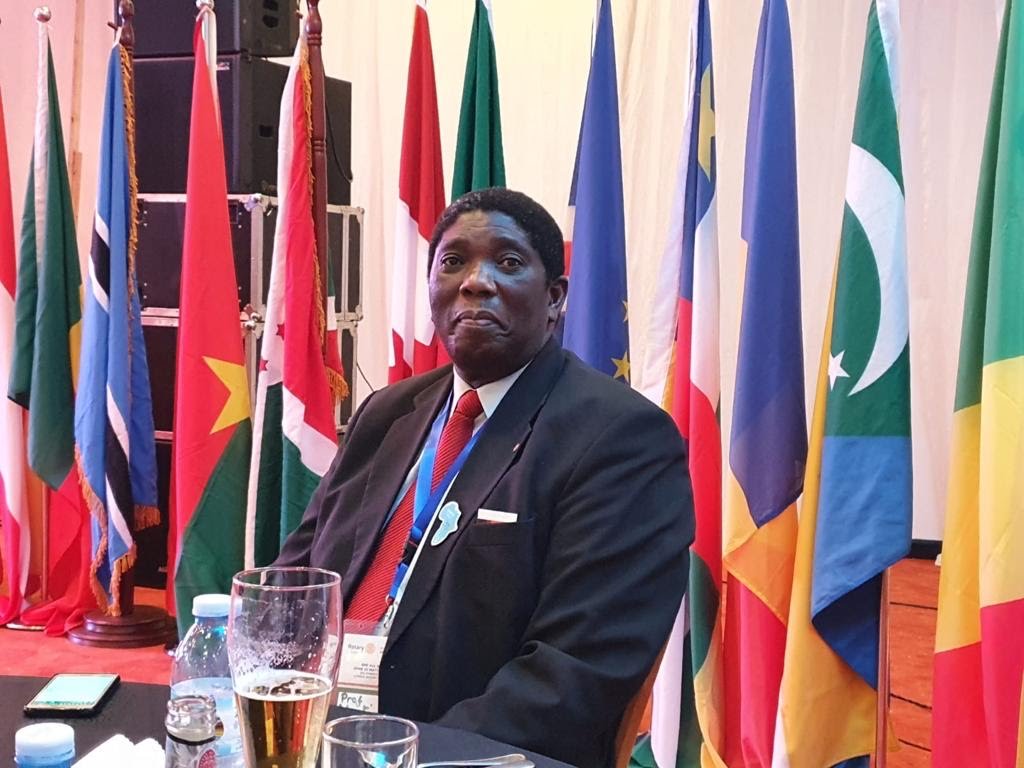Obituary: Martin Revai Rupiya, ‘The Elder’

Shortly before defence studies scholar Professor Martin Revai Rupiya died at Zambia’s Copperbelt University, where he was executive director of the Dag Hammarskjöld Institute for Peace and Conflict Studies, he was signing off his emails as “The Elder.” This was not due to hubris so much as his infectious sense of humour, and it was also a testament to his lengthy role as teacher and mentor to hundreds of students across Africa.
Rupiya began to focus on academia in 1989 when he retired from the Zimbabwe National Army, where he had reached the rank of Lieutenant-Colonel. By then he already held a BA Honours in Economics and History and a Diploma in War and Strategic Studies from the University of Zimbabwe. He moved to Britain, where he enrolled for a Master’s in War and Strategic Studies at King’s College. On his return in 1990, he joined the history faculty at the University of Zimbabwe, where he enrolled for a PhD in History and Military Studies. Rupiya established the Centre for Defence Studies (CDS) and proved resourceful in networking the CDS and getting it funding.
In 1999 he was my designated BA Honours in History dissertation supervisor. Although a towering figure – he was over 2m tall – he was a warm and gentle giant. After that first meeting, he took me under his wing, trained me in archival research and helped me find my way; I was also his paid student research assistant.
After a distinguished career in Zimbabwe he moved to South Africa, where he was variously associated with the Centre for Africa’s International Relations at Wits University as a Senior Fellow; Rhodes University’s Politics and International Studies Department as a Visiting Associate Professor for the Institute of African Renaissance Studies, and at Unisa as a Visiting Fellow and Associate Professor.
A prolific scholar, he will be remembered for his 1989 book, Landmines in Zimbabwe: A Deadly Legacy, a pioneering work on the subject that had new ideas to address the horrors of landmines in affected areas, including a mine clearance programme that provides jobs for impoverished communities. Worth mentioning also is his Funding Defence: Challenges of Buying Military Capability in Sub-Saharan Africa, which he co-authored with Dan Henk, and was one of the first comprehensive studies of defence budgeting practices in Africa. Wide reading and publishing were ethos Rupiya always tried to inculcate into his graduate students: “Keep publishing,” he would say, “it is the master key to opportunities.”
His expertise was highly regarded both on the continent and beyond. He consulted for numerous bodies and governments, including the African Union on Burundi, the Democratic Republic of the Congo, Rwanda and Uganda, Sudan and the United Nations mission in Sudan. He was a visiting senior lecturer to the South African Defence and National War College and other staff colleges in the Southern African Development Community region.
Rupiya was an editor and board member of several local and international academic publications. As CDS director at the University of Zimbabwe, he was a founding co-editor of The Journal of Peace, Conflict and Military Studies; he was also an editorial board member of the Journal of African Military History, an international, peer-reviewed journal of scholarship on war and society in Africa.
Rupiya believed that knowledge should not be disseminated solely in lecture and conference halls and academic publications, which is why he was a constant presence on local and international media, in television and in print. An avid traveller and a Christian, in his spare time he enjoyed a game of squash.
In the last email he sent me on 10 January, he signed off by saying “… 2022 may be our turning point; remain strong. The Elder.” What a turning point his passing is, as Rupiya now transitions to join his ancestors. Martin Revai Rupiya, born 1 April 1953, died 11 February 2022, is survived by his wife Prisca and three children.
This article by Gwinyayi Dzinesa was first published in the Mail & Guardian. Read the original in the Mail & Guardian.


